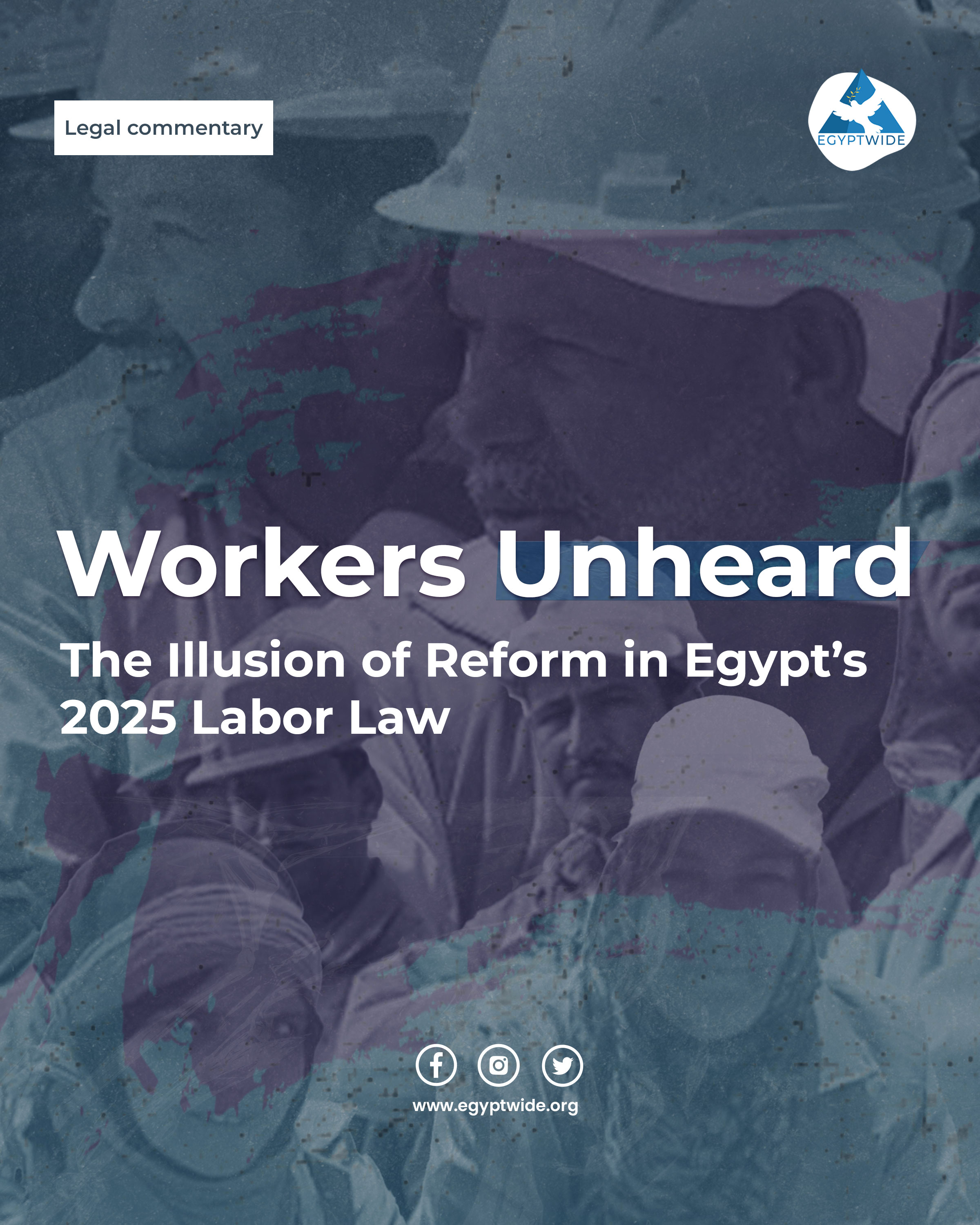
EgyptWide for Human Rights announces the publication of a legal commentary titled “Workers Unheard: the Illusion of Reform in Egypt’s 2025 Labor Law”. The commentary analyzes the pillars of Egypt’s new labor legislation, Law No.14 of 2025, assessing progress in the recognition of workers’ rights and the related safeguarding mechanisms.
While governmental rhetoric overly emphasized progress in the advancement of labor rights, the new discipline disproportionately privileges employers at the expense of workers, granting them remarkable discretion in matters of collective bargaining, contract stipulation, and termination. Access to social security schemes and safeguards against casualization or unjustified layoffs remain limited, while anti-discrimination and anti-harassment measures introduced under the new Law appear toothless due to the vagueness of the language chosen for their formulation and the rather symbolic nature of the corresponding sanctions.
Crucially, the new discipline introduces further restrictions to the exercise of workers’ rights to strike and unionization, which place workers under the guardianship of state-affiliated unions, undermining independent labor activism and bottom-up accountability in collective bargaining processes.
Although not overtly criminalizing worker mobilization, Law No.14 of 2025 creates a backdoor for employers to retaliate against striking workers by legalizing the layoff of those convicted in criminal offences under national security law- a fate which many of them encounter due to the arbitrary use of such charges against all forms of street protest, including in the workplace.
Significantly, the Law introduces some measures to combat gender-based discrimination in the workplace, yet it fails to address workers’ vulnerability in one of the sectors where women are largely overrepresented- the domestic and carework industry-, while safeguards against workplace harassment and discrimination, and the rights of working parents, remain insufficient to meet international standards.
The legal commentary is available in Arabic and English.